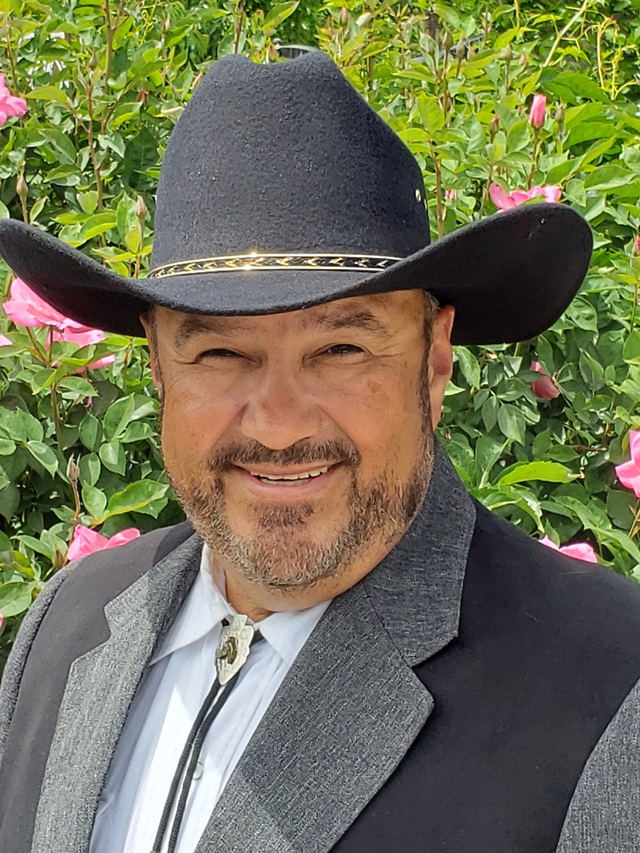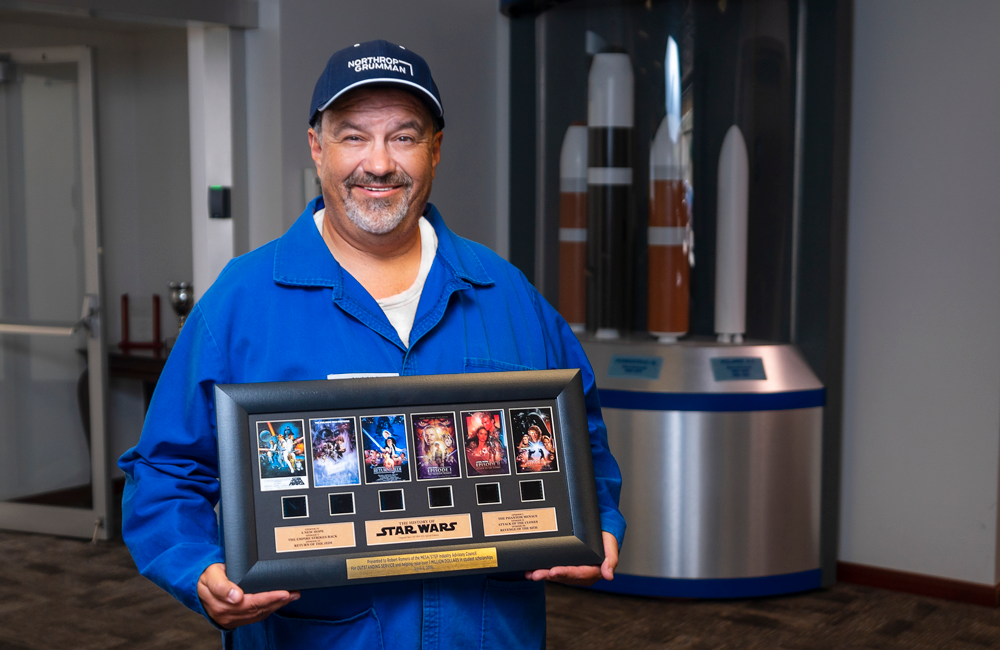If you would have told me when I was a young boy growing up on a Colorado dairy farm that I would get the opportunity to design, build and test rocket motors for a living, I never would have believed you.

My father was a dairyman who left school when he was in sixth grade to help on the family farm. My mother was in eighth grade when her schooling came to an end. The two of them knew leaving school early limited their career choices. That’s why they always stressed the importance of receiving an education, and I knew if I wanted to go to school, I would have to keep my grades up and earn scholarships.
I discovered my passion for aircraft and aerospace at a very young age, and I wanted to be a fighter pilot but, unfortunately, my vision kept me from realizing that dream. Still, I worked hard and decided to attend Arizona State University (ASU), where I eventually received my bachelor’s degree in aeronautical engineering.
During my senior year at ASU, Hercules — a Northrop Grumman heritage company — visited campus and I had the opportunity to interview with recruiters. After visiting the Bacchus facilities, I was offered a job and started my career as a systems test engineer.
Today, I’m responsible for implementing static fire and flight testing programs, along with scheduling, managing and providing project engineering support for some of our nation’s Ballistic Missile solid rocket motors. These motors are a key component of our country’s defense and the safety and security of our allies.
We need to know that its performance is reliable, repeatable and safe, and ensure the motors, if used, perform as intended. Making the testing of the motors critical.
For more than 29 years, I have been a project engineer and, with the exception of just one year, I’ve led or participated in every ballistic missile test associated with my program since 1992.
In all that time, only one other role has compared to my tenure as a project engineer. For 29 years, I’ve also served as an Industry Advisory Council (IAC) member for the Utah Mathematics, Engineering, Science Achievement/Science, Technology, and Engineering Programs (MESA/STEP) program.

MESA/STEP is a nonprofit consortium composed of higher education institutions, business and industrial partners, public school districts, government agencies and community organizations. The primary goal of MESA/STEP is to increase the number of underserved ethnic minority and female students who pursue course work, advanced study and careers in mathematics, engineering and science.
MESA is the pre-college component that currently sponsors clubs in more than 90 Utah public schools. MESA clubs are usually directed by a mathematics or science teacher from the school and provide a variety of services and activities for participating students including field trips, activities with other clubs, academic and career advising, and tutoring and mentoring.
STEP is the higher education component which provides a continuing pipeline for MESA students through partnerships with local colleges and universities. STEP helps students engage in collaborative activities with business and industry partners, government agencies, and professional and community organizations. In addition to tutoring and mentorship, students participating in MESA/STEP receive assistance building resumes, applying for internships and scholarships, completing developmental workshops and identifying job opportunities.
Every year, the MESA/STEP IAC — of which Northrop Grumman has been a member for more than36 years — donates annual scholarships for qualified MESA graduating seniors and ongoing STEP students.
Since its establishment in 1985, Utah MESA has raised more than $1 million for student scholarships and served 50,000 students. To date, Northrop Grumman and its heritage companies have donated nearly $155,000 for scholarships. I’m proud to have played a role in that effort, helping students pursue their dreams. Several students who participated in the MESA/STEP program are now Northrop Grumman employees.

I firmly believe that a hundred years from now it won’t matter what my bank account was, the sort of house I lived in, or the kind of car I drove — but the world may be different because I made a difference in the lives of students.
About Robert: Robert’s fascination with space started in the spring of 1977, with the world premiere of Star Wars. In addition to being an enthusiastic Star Wars fan, Romero is also an avid sports fan. Robert has attended every Denver Bronco induction into the Pro Football Hall of Fame – 9 total – in Canton, Ohio. He is a season ticket holder for the University of Utah Football and Gymnastics teams, as well as a 31 year season ticket holder of the Salt Lake Golden Eagles and Utah Grizzlies hockey teams. Robert considers his parents his heroes because of the hard work ethic and values they instilled in him. Romero says his biggest accomplishments are his wife, Trish, and his two daughters, Rachel and Kiara.
Return to Life at Northrop Grumman home page.